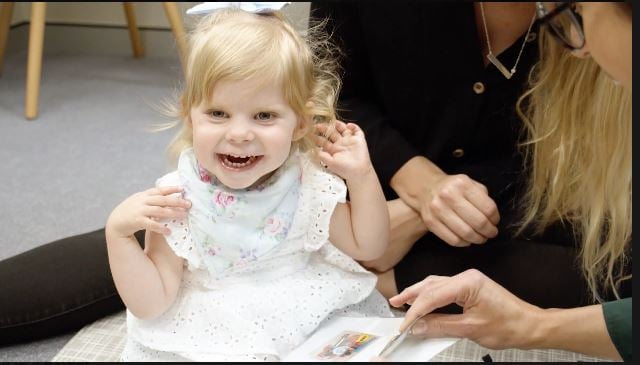Search
Showing results for "autism"

Deputy Director (Research); Angela Wright Bennett Professor of Autism Research at The Kids Research Institute Australia; Director, CliniKids
Reading Disability is often characterized by difficulties in the phonology of the language. While the molecular mechanisms underlying it are largely undetermined, loci are being revealed by genome-wide association studies.
Autistic children demonstrate an increased likelihood of self-injurious behaviours (SIB). To support autistic individuals who exhibit SIB and understand the factors that contribute to SIB, we examined several child and family characteristics associated with the severity of SIB.
Autistic children have an increased likelihood of anxiety, but more research is needed on the characteristics that predict various types of anxiety in this population.

Communicating with and Understanding your Baby
Atypical facial morphology, particularly increased facial asymmetry, has been identified in some individuals with Autism Spectrum Conditions (ASC). Many cognitive, behavioural and biological features associated with ASC also occur on a continuum in the general population.
Andrew Gail Videos Whitehouse Watch and listen to Andrew Alvares PhD PhD Deputy Director (Research); Angela Wright Bennett Professor of Autism
The breadth of available non-pharmacological interventions for autistic children, with varying evidence for efficacy summarised in multiple systematic reviews, creates challenges for parents, practitioners, and policymakers in navigating the research evidence. In this article, we report the findings of an umbrella review of 58 systematic reviews of non-pharmacological interventions for autistic children (aged 0–12 years).
The current investigation measured AT in 360 males and 400 males from the general population close to two decades apart, using the Pervasive Developmental...
Andrew Videos Whitehouse Watch and listen to Andrew PhD Deputy Director (Research); Angela Wright Bennett Professor of Autism Research at The Kids
